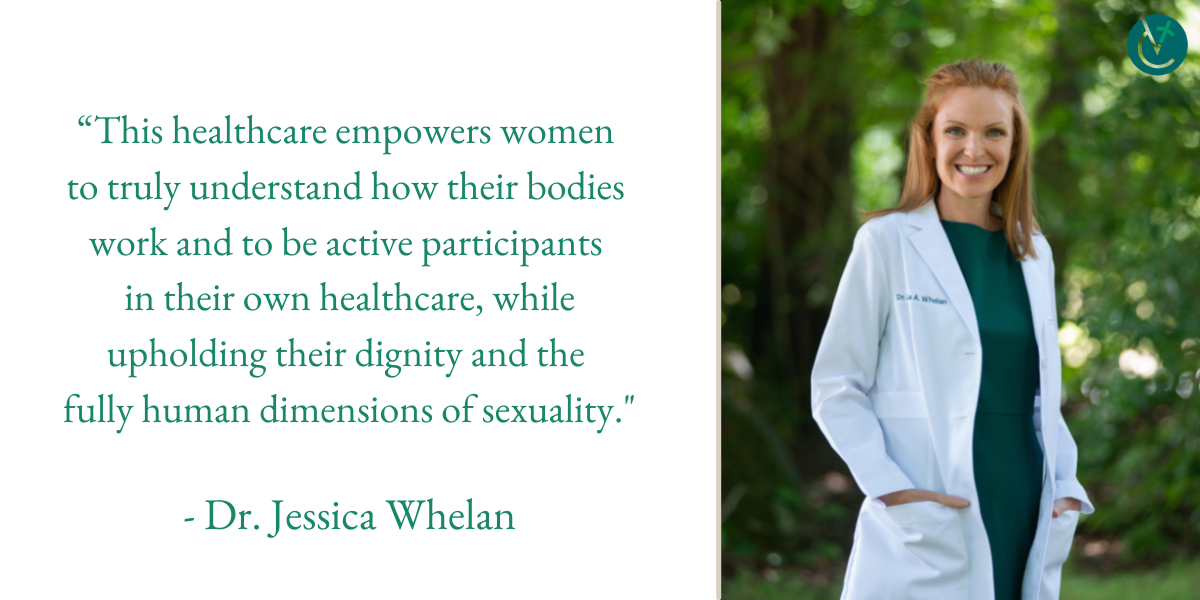
Healthcare that considers God’s design
Providing healthcare that acknowledges the whole person and takes into account God’s design for the body is of the utmost importance to Dr. Jessica Whelan.
Originally from Earleville, Maryland, Whelan made her way to Vermont to do her year-long residency but felt the divine call to stay.
Growing up she wasn’t sure what she wanted to do and had many interests that ranged from being a journalist, to a missionary, to a doctor.
“I thought about being a pediatrician, and I wanted to work with kids so then I became a teacher.”
Whelan received her bachelor’s degree in early childhood education and music at Salisbury University in Maryland. While there, her anatomy professor told her about naturopathic medicine. She was drawn to it because naturopathic medicine looks at the whole person and is a helping profession.
“It feels like it was the next natural step in my spiritual journey to learn more about the body,” she said.
She went on to attend medical school at the National University of Natural Medicine in Portland, Oregon. “My first day of medical school I remember writing in my journal ‘This is about all of us,” she said.
When it came time to complete her residency, Whelan applied to schools on both coasts. She wanted to do a residency in a state that licensed her profession to the highest scope of practice and settled on Vermont.
She was matched with a doctor in St. Albans and worked with him for a year. Toward the end of her residency, she started discerning whether to move back to Maryland to be with family; God had other plans.
“I was in church one day, and God told me to stay in Vermont and I felt so much peace about it,” she said.
As a result, she began her own naturopathic practice in St. Albans. The way she treats clients is inspired by her hero, St. John Paul II.
“I see God in every single person that comes into my office,” she said.
The works of St. John Paul II influenced Whelan and she began studying Theology of the Body. Around the same time, she learned about the Creighton Model FertilityCare System from her mother. This model uses observations and charting of biological markers to identify when a woman is naturally fertile and infertile.
It uses NaPro technology which is a comprehensive women’s health science that allows doctors to evaluate the underlying causes of reproductive health issues and to treat them in a way that works cooperatively with the body without suppressing or destroying fertility.
This model sounded similar to what she learned about naturopathic medicine, and she enrolled in a dual program to be a practitioner and medical consultant. Not only does this allow her to teach women how to chart their menstrual cycle, but it also lets her use their chart to do the medical piece like order labs and prescribe medication.
“It lets my professional life and my spiritual life converge,” she said.
Whelen is almost done with the rigorous 13-month program that includes two, one-week-long training sessions in Omaha, Nebraska, exams and onsite visits from a supervisor.
“This healthcare empowers women to truly understand how their bodies work and to be active participants in their own healthcare, while upholding their dignity and the fully human dimensions of sexuality,” Whelan said.
From teenagers who want to learn how their cycles work, to women going through menopause, Whelan can help them. The Creighton Model is also used for couples who are looking to naturally avoid or achieve a pregnancy.
“lt empowers both men and women to understand their shared fertility. It supports strong marriages and allows couples to work together and communicate in the most intimate, creative and powerful part of their life. By guiding couples to work in harmony with their fertility, we’re helping them to love in God’s Image, as Jesus loved us — as a total self-gift,” she said.
—Originally published in the Spring 2022 issue of Vermont Catholic magazine.

